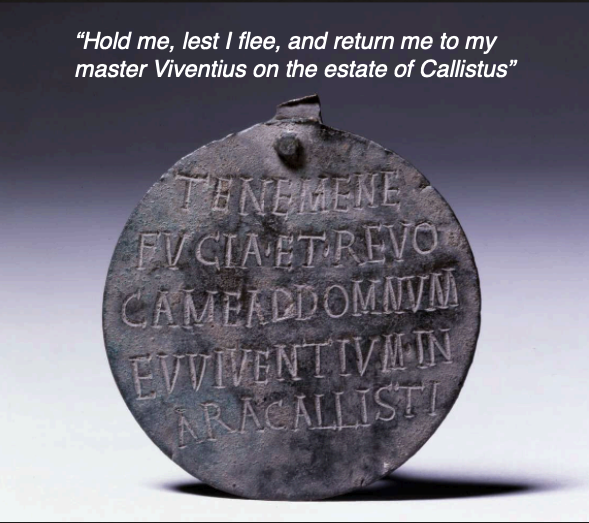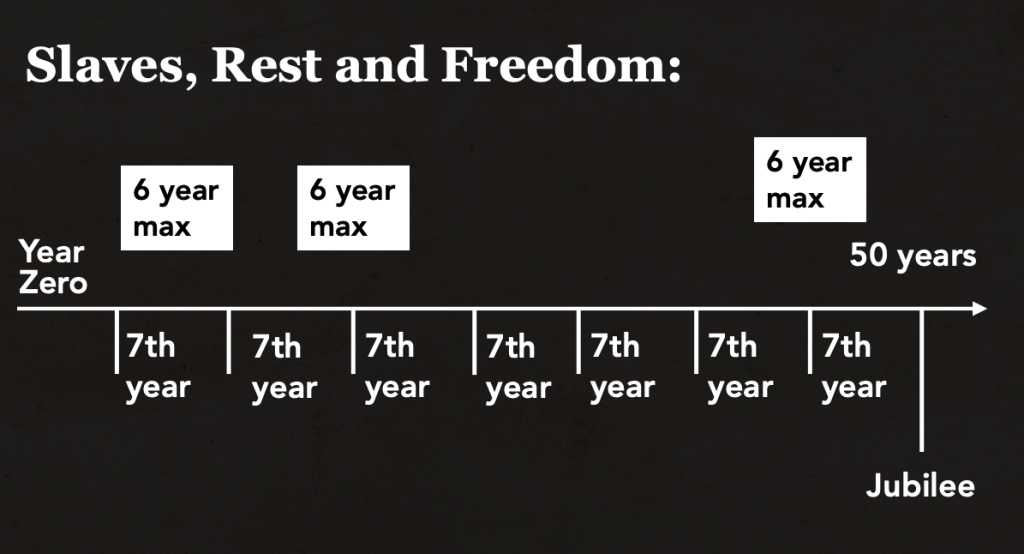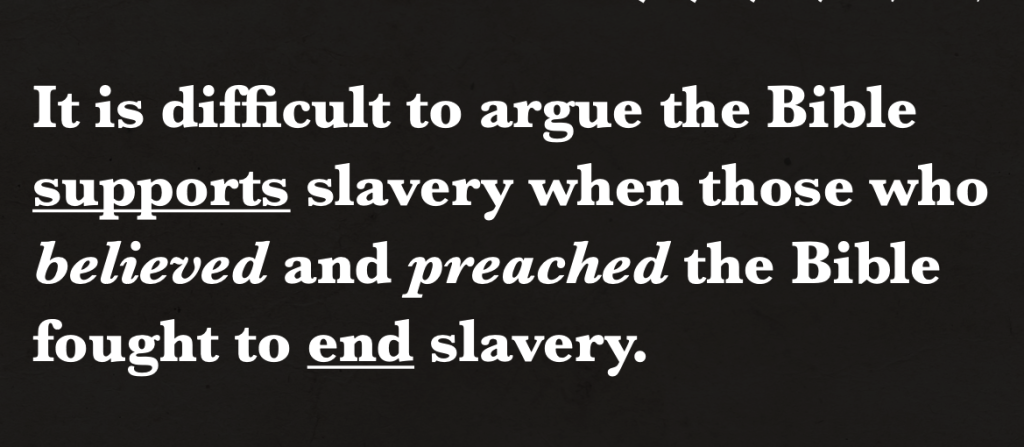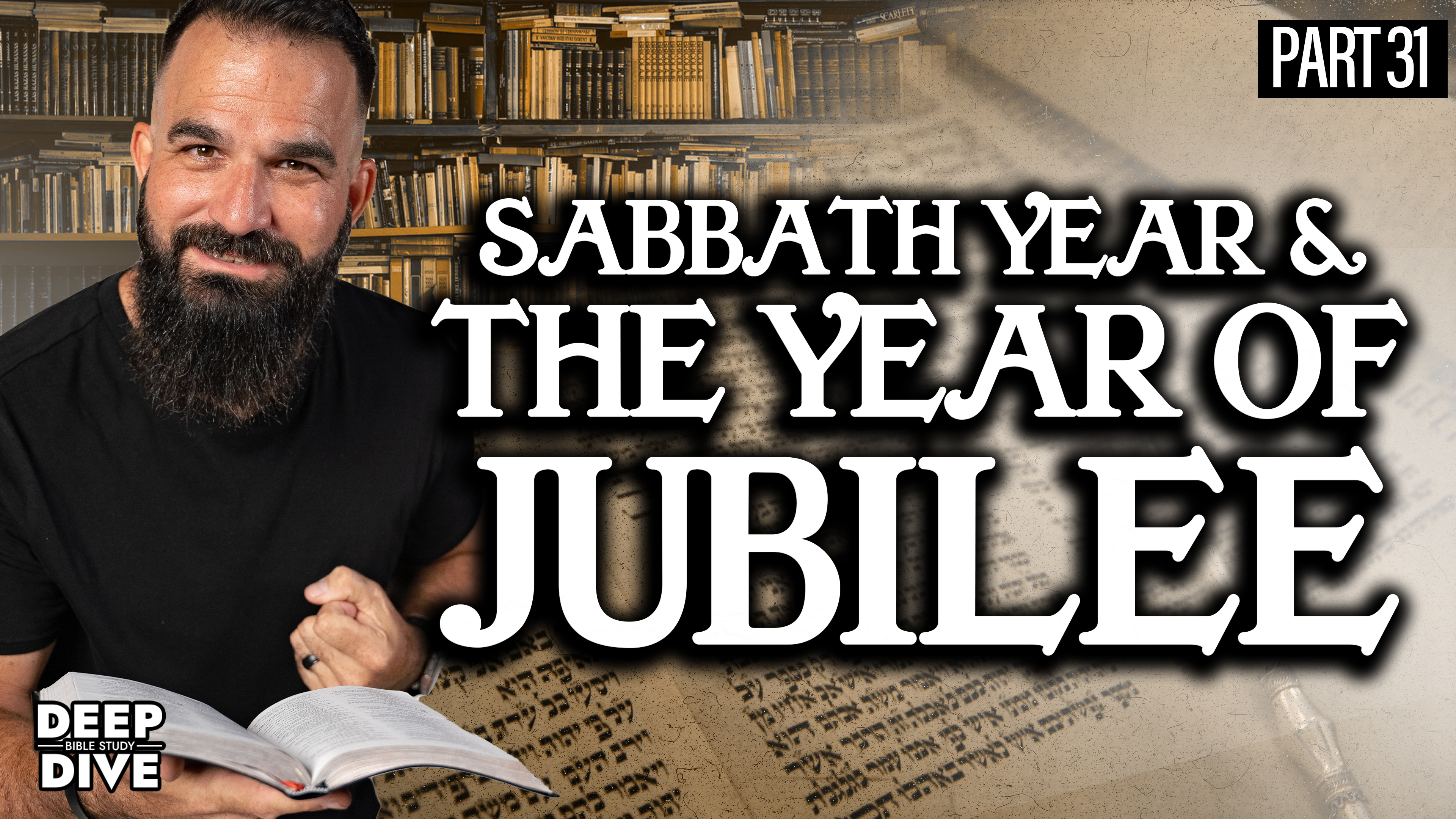About This Project
Slavery.
Why didn’t God eliminate slavery?
Do we need to adapt the Bible to more modern times?
What does the Torah and Bible say about slaves?
How do we as Christians address the very challenging topic of slavery in the Bible?
In the Bible God talks about how the Israelites were supposed to take slaves. We modern people will use this conversation in the Holy Scriptures as an excuse to devalue the Texts and question the inerrancy and the reliability, and even the Holy Spirit inspiration of the Bible.
On this study we dig deep into the historical significance of slavery, what the Bible really says about slaves, the Christians who rose to stop the slave trade, and how slavery continues today in the modern era.
Join us on this enlightening journey as we wrestle with tough questions, confront misconceptions, and ultimately, draw closer to God’s heart. 🙏 Don’t miss out on this powerful exploration of faith, morality, and the enduring message of hope found within the pages of the Bible.
This is a powerful study on the depth of God’s love.
☑️ You can partner with us to get the message out with a one-time gift at Tim Hatch Live Support OR on the Cash App with cashtag: $timhatchlive
💥 Become a monthly partner and enjoy loads of exclusive channel perks at Tim Hatch Live Patreon
✳20% of all giving will be tithed back out to The American Bible Society and Project Rescue.
Start [0:00]
▶ How can we trust the Bible? [1:45]
▶ What is Chronological Snobbery? [5:50]
▶ What does the Torah say about slavery? [9:18]
▶ What was slavery like in the ancient world? [10:55]
▶ What did ancient philosopher say about slavery? [13:06]
▶ What was a Slave Tag in the Roman Empire? [14:55]
▶ What did the Roman historian Seneca write about the conditions of slaves in the Roman Empire? [16:42]
▶ What does the Torah and Bible say about slavery [19:04]
▶ Did slavery act as a social safety net? [26:00]
▶ Does the Torah or Bible prohibit the slave trade? [28:02]
▶ What does the Torah or Bible say about runaway slaves? [32:06]
▶ What does Hammurabi’s Code say about runaway slaves? [33:55]
▶ How does the Bible guarantee the freedom of slaves? [35:55]
▶ What is the Sabbath Year? [38:58]
▶ How long did Hebrew slaves serve? [41:07]
▶ Does the Torah or Bible guarantee reparations or retribution when a slave is released? [44:28]
▶ Was life-time service optional for slaves in the Bible? [46:09]
▶ What rights did the Torah grant slaves? [48:45]
▶ How did Christians end modern slavery? [51:12]
▶ Why didn’t God end slavery in the Bible? [57:09]
Notes:
Slavery in The Ancient World
- Slavery in their own words: Aristotle (384–322 BC): called a doulos or slave “an animated tool, just as a tool is a soulless slave.”
- Cicero (106–43 BC) “They are our tools for life, but they lack their own. That is the meaning of the ancient saying that slaves are living tools and tools lifeless slaves.”
- Plato (428-347 BC): “To be sure, my dear friend, a man should act toward his slaves as he does toward his animals. He should set no one of them free.”

Seneca, A.D. 64
- When we recline at a banquet, one slave mops up the disgorged food, another crouches beneath the table and gathers up the left-overs of the tipsy guests. Another carves the priceless game birds […]. Hapless fellow, to live only for the purpose of cutting fat capons correctly […]. Another, who serves the wine, must dress like a woman and wrestle with his advancing years; he cannot get away from his boyhood; he is dragged back to it; and though he has already acquired a soldier’s figure, he is kept beardless by having his hair smoothed away or plucked out by the roots, and he must remain awake throughout the night, dividing his time between his master’s drunkenness and his lust; in the chamber he must be a man, at the feast a boy.
Slavery in Torah
- Exodus 21:1–6 (ESV) “Now these are the rules that you shall set before them. 2 When you buy a Hebrew slave, he shall serve six years, and in the seventh he shall go out free, for nothing. 3 If he comes in single, he shall go out single; if he comes in married, then his wife shall go out with him. 4 If his master gives him a wife and she bears him sons or daughters, the wife and her children shall be her master’s, and he shall go out alone. 5 But if the slave plainly says, ‘I love my master, my wife, and my children; I will not go out free,’ 6 then his master shall bring him to God, and he shall bring him to the door or the doorpost. And his master shall bore his ear through with an awl, and he shall be his slave forever.
Slave = ‘ebed |ʿebed can mean “worker,” “employee,” “servant,” or “slave.”
Slaves in the Narrative
- Genesis 17:12–13 (ESV) He who is eight days old among you shall be circumcised. Every male throughout your generations, whether born in your house or bought with your money from any foreigner who is not of your offspring, 13 both he who is born in your house and he who is bought with your money, shall surely be circumcised. So shall my covenant be in your flesh an everlasting covenant.
- Genesis 17:26–27 (ESV) at very day Abraham and his son Ishmael were circumcised. 27 And all the men of his house, those born in the house and those bought with money from a foreigner, were circumcised with him.
- Exodus 12:43–44 (ESV) And the LORD said to Moses and Aaron, “is is the statute of the Passover: no foreigner shall eat of it, 44 but every slave that is bought for money may eat of it after you have circumcised him.
Slavery as Social Safety Net
- Leviticus 25:39–42 (ESV) “If your brother becomes poor beside you and sells himself to you, you shall not make him serve as a slave: 40 he shall be with you as a hired worker and as a sojourner. He shall serve with you until the year of the jubilee. 41 en he shall go out from you, he and his children with him, and go back to his own clan and return to the possession of his fathers. 42 For they are my servants, whom I brought out of the land of Egypt; they shall not be sold as slaves.
Slave Trade Prohibited (Old Testament)
- Exodus 21:16 (ESV) “Whoever steals a man and sells him, and anyone found in possession of him, shall be put to death.
- Deuteronomy 24:7 (ESV) “If a man is found stealing one of his brothers of the people of Israel, and if he treats him as a slave or sells him, then that thief shall die. So you shall purge the evil from your midst.
- Amos 1:6 (ESV) us says the Lord: “For three transgressions of Gaza, and for four, I will not revoke the punishment, because they carried into exile a whole people to deliver them up to Edom.
Slave Trade Prohibited (New Testament)
- 1 Timothy 1:8–10 (ESV) Now we know that the law is good, if one uses it lawfully, 9 understanding this, that the law is not laid down for the just but for the lawless and disobedient, for the ungodly and sinners, for the unholy and profane, for those who strike their fathers and mothers, for murderers, 10 the sexually immoral, men who practice homosexuality, enslavers, liars, perjurers, and whatever else is contrary to sound doctrine,
Runaways were to be Released
- Deuteronomy 23:15–16 (ESV) “You shall not give up to his master a slave who has escaped from his master to you. 16 He shall dwell with you, in your midst, in the place that he shall choose within one of your towns, wherever it suits him. You shall not wrong him.
- Code of Hammurabi, Law 15: “If a man harbors a fugitive in his house and does not bring him out to the public, that man shall be put to death.”
- Code of Hammurabi, Law 16: “If a slave of a freeman runs away from the city, and someone returns him, the owner of the slave shall give the finder two shekels of silver.”
- Code of Hammurabi, Law 117: “If a slave of a man has fled into the city, one may arrest him there and bring him back to his owner.”
Freedom Guaranteed
- Exodus 21:2 (ESV) When you buy a Hebrew slave, he shall serve six years, and in the seventh he shall go out free, for nothing.
- Exodus 21:26 (ESV) “When a man strikes the eye of his slave, male or female, and destroys it, he shall let the slave go free because of his eye.
- Deuteronomy 15:12 (ESV) “If your brother, a Hebrew man or a Hebrew woman, is sold to you, he shall serve you six years, and in the seventh year you shall let him go free from you.
- Isaiah 58:6 (ESV) “Is not this the fast that I choose: to loose the bonds of wickedness, to undo the straps of the yoke, to let the oppressed go free, and to break every yoke?
- Leviticus 25:10 (ESV) And you shall consecrate the fiftieth year, and proclaim liberty throughout the land to all its inhabitants. It shall be a jubilee for you, when each of you shall return to his property and each of you shall return to his clan.
The Sabbath Year:
- Leviticus 25:3–7 (ESV) For six years you shall sow your field, and for six years you shall prune your vineyard and gather in its fruits, 4 but in the seventh year there shall be a Sabbath of solemn rest for the land, a Sabbath to the Lord. You shall not sow your field or prune your vineyard. 5 You shall not reap what grows of itself in your harvest, or gather the grapes of your undressed vine. It shall be a year of solemn rest for the land. 6 e Sabbath of the land shall provide food for you, for yourself and for your male and female slaves and for your hired worker and the sojourner who lives with you, 7 and for your cattle and for the wild animals that are in your land: all its yield shall be for food.

Retribution Prescribed:
- Deuteronomy 15:13–15 (ESV) And when you let him go free from you, you shall not let him go empty-handed. 14 You shall furnish him liberally out of your flock, out of your threshing floor, and out of your winepress. As the Lord your God has blessed you, you shall give to him. 15 You shall remember that you were a slave in the land of Egypt, and the Lord your God redeemed you; therefore I command you this today.
Lifetime Service Optional:
- Deuteronomy 15:16–18 (ESV) But if he says to you, ‘I will not go out from you,’ because he loves you and your household, since he is well-off with you, 17 then you shall take an awl, and put it through his ear into the door, and he shall be your slave forever. And to your female slave you shall do the same. 18 It shall not seem hard to you when you let him go free from you, for at half the cost of a hired worker he has served you six years. So the Lord your God will bless you in all that you do.

Yet none of this suggests that slavery is a morally good thing.
This is not an exhaustive study on the issue.

Why didn’t the Torah eliminate slavery?
- God is working on our hearts where we are not where we should be.
- The law is intended to limit the powerful and protect the vulnerable.
- Perhaps, God is seeking to make us more like Himself – the one who sets the slave free.
Paul’s use of the law:
- Philemon 15–18 (ESV) For this perhaps is why he was parted from you for a while, that you might have him back forever, 16 no longer as a bondservant but more than a bondservant, as a beloved brother—especially to me, but how much more to you, both in the flesh and in the Lord. 17 So if you consider me your partner, receive him as you would receive me. 18 If he has wronged you at all, or owes you anything, charge that to my account.
Questions to Consider:
- Why do you think God allowed slavery to exist during biblical times?
- How do you reconcile the presence of slavery in the Bible with modern-day moral standards?
- What are some key teachings about slavery in the Torah and the Bible?
- As Christians, how should we approach the topic of slavery, especially considering its challenging aspects in the Bible?
- In what ways does understanding the historical context of slavery enhance our interpretation of biblical teachings on this topic?
👍 👍 👍 Pastor Recommends 👏 👏 👏
⬇️ Tim Hatch Live ⬇️
🎙 The Deep End dives deeper into Faith, Politics, Bible, & the world, Tues 7:30p & on your favorite podcast app
📖 Deep Dive Bible Study Kings of Compromise, Weds 7:30p
❓10 Questions with Tim, Q&A segment providing answers, LIVE 1st Thurs, Noon
👉 Ask Anything email ask@timhatchlive.com
🔵 WATCH MORE
🔵 BOOKS
🔵 SWAG
🔵 RUMBLE
🔵 FACEBOOK
🔵 TWITTER
🔵 INSTAGRAM
🔵 TIKTOK










No Comments